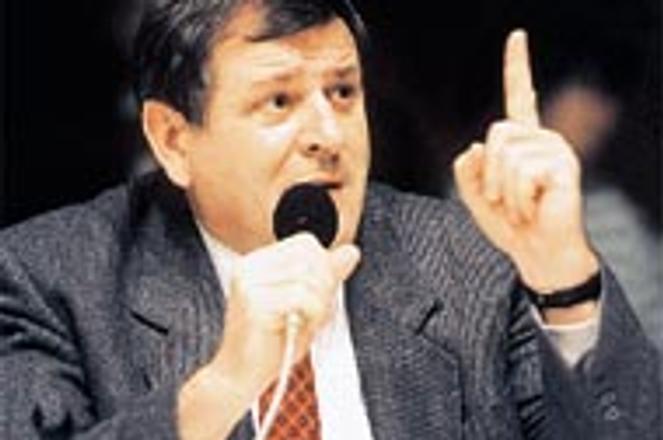As some three million Slovak citizens went to the polls on May 24-25 to vote on a series of questions regarding Slovakia's NATO membership, they knew that their votes would be unambiguous and decisive in dictating how their country's foreign policy would be handled for years to come.
But a separate issue asking Slovaks whether they want to elect their country's president may not be decided definitively by this vote, as Slovakia's Constitutional Court refused to rule on the cabinet's contention that a referendum on the president's direct election is unconstitutional.
On April 22, Prime Minister Vladimír Mečiar's cabinet turned to the court in an attempt to knock the direct presidential election question off the ballot. Opposition deputies said that the cabinet was trying to thwart the referendum and criticized it for putting the court under severe time constraints, pointing out that even cases tagged as 'urgent' generally take the court more than three months to decide.
Perhaps wanting to avoid snapping a sensitive nerve right before the referendum took place, the court nimbly sidestepped the direct presidential election issue altogether, meaning that the question remained on the ballot. The explanation was that the cabinet was not of the three legal entities able to file a complaint on this issue.
"According to the [court] Senate's decision, the cabinet cannot participate in this issue," said Marianna Mochnáčová, the director of Court Chairman Milan Čič's office. "Therefore it didn't have the right to turn to the court." Mochnáčová added that in the Senate's view, the referendum process involves these three parties: the president as the authority who calls it, the Central Referendum Committee (ÚKR), and the Minister of Interior, who coordinates the state administration's carrying out of ÚKR's decisions.
But the whole affair is most likely not over, since all reactions from the cabinet indicate that it will bind Interior Minister Gustáv Krajči to resubmit the cabinet's contention that the vote is not legal -- especially if the public votes 'Yes' to a popular vote for the country's next president. One candidate who could be in the running for the spring 1998 election is current President Michal Kováč, a hated rival of Mečiar and the coalition.
The other three questions revolve around Slovakia's NATO membership - whether they favor the country entering the alliance and whether they would accept foreign troops and nuclear weapons on Slovak soil.
The three ruling coalition parties didn't participate in the ten-day media campaign until the third day, among them Mečiar's Movement for a Democratic Slovakia (HZDS). Two out of three fused to submit any spots to Slovak Television, which sponsored free air time for parties to lobby voters.
The ultra-right Slovak National Party (SNS) said it delayed because the TV campaign's introduction was swaying the viewer to respond positively by highlighting the word 'Yes' too much; the HZDS claimed it was awaiting the Constitutional Court's decision before it moved on anything else.
Recommended choices
The so-called "Blue Coalition," a group of eight opposition parties which engineered a petition drive earlier this year to hold a referendum on direct presidential election, wasted no time in using the air time, adopting a common stance to each of the four questions. This alliance, headed by the Christian Democratic Movement (KDH) and the Democratic Union (DU) and joined by the Hungarian parties, recommended that their parties' voters respond 'Yes' to entering NATO (the first question) and to the direct presidential election (the fourth question) and ignore questions number 2 and 3 dealing with foreign troops and nuclear weapons on Slovak territory.
The Party of the Democratic Left (SDĹ) which is not part of the bloc, recommended its voters say 'Yes' to questions 1 and 4, 'No' to the second question and ignore the third.
Mečiar's HZDS recommended its voters say 'Yes' to the first question, 'No' to the fourth but left them with a free choice concerning questions number 2 and 3.
The easiest job seemed to fall to the fans of the ultra-right SNS and ultra-left Association of Slovak Workers (ZRS), both of whom are in Mečiar's government. Both parties recommended answering 'No' to all four questions.
Slovak President Michal Kováč (right) is praying that a 'Yes' vote on direct presidential elections will end up being valid, while Prime Minister Vladimír Mečiar and his cabinet have strongly indicated they will take the issue to court.


